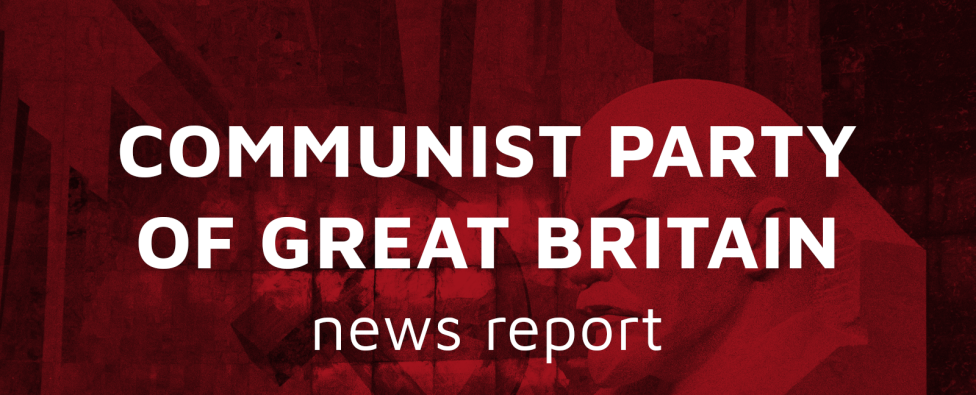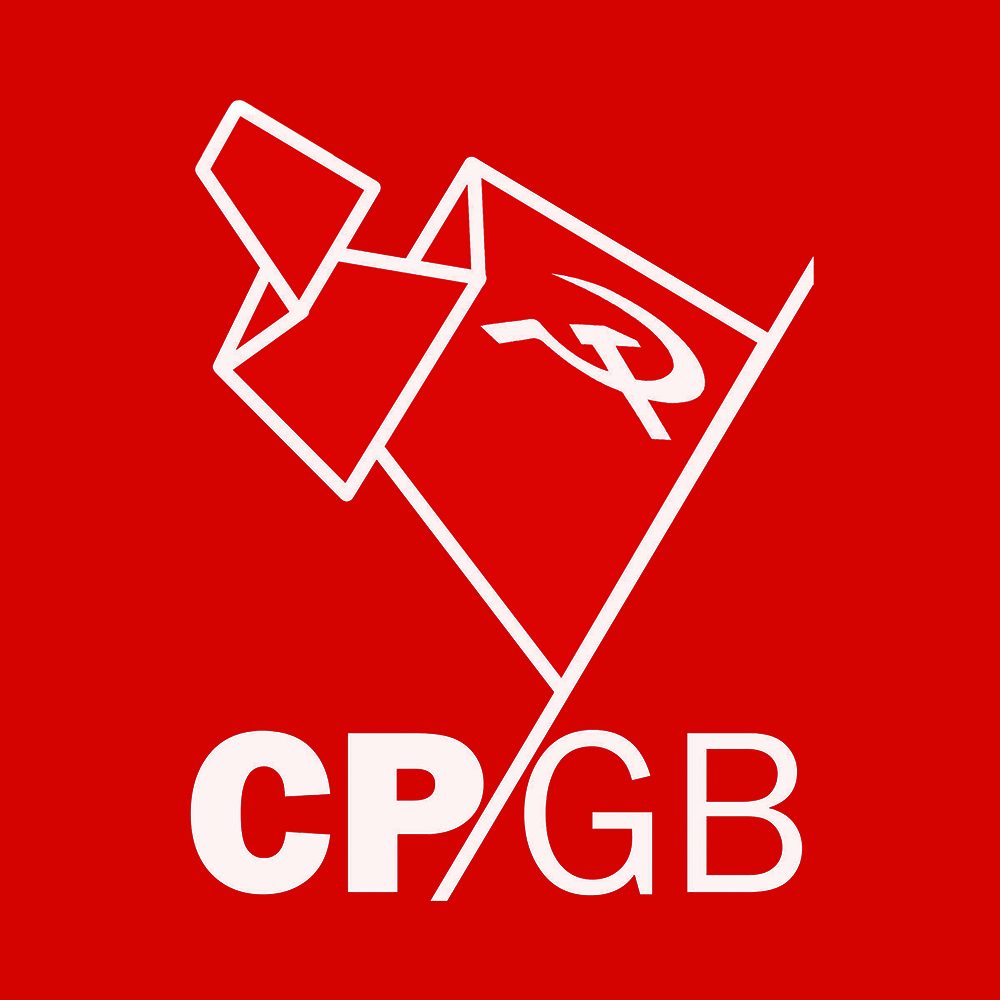
Report on the May 7 CPGB aggregate which discussed Ukraine and our plans for Communist University and fundraising. This report was originally published in WW1395, which can be found here
Time to rebel!
The central message from the May 7 aggregate meeting of CPGB members and invited guests was: now is the time to begin a real fightback against the social-pacifists and pro-Nato ‘socialists’ who have betrayed the left internationally! The task of principled socialists is to encourage rebellions within such left groups, reflecting their anger at the way so many of their ‘leaders’ have either gone openly over to the bourgeoisie or remain complicitly silent in the face of a major geopolitical crisis.
The tone for the discussion was set by Provisional Central Committee member Jack Conrad’s opening, which began by considering the significance and context of the war in Ukraine – which, he argued, was a turning point in world history. The key issue was the reality that the real conflict was not between the big bully, Russia, and ‘plucky little Ukraine’, but rather turned on an attempt by the declining hegemon, the United States, to reassert its global dominance. Thus, Nato’s aims in this proxy war extend beyond ending the strategic occupation of Crimea and the Donbas regions to regime change in Moscow, bringing the Russian state to heel and ending its alliance with China. Following Clausewitz’s dictum that war is the continuation of politics by other means, it is clear that China is the ultimate target of the US and its Nato clients: the current drive against Russia is but a prelude to a future conflict and proxy war against the rising power in the east.
Tracing the development of the war, comrade Conrad outlined the way that Nato had ratcheted up sanctions and increased military aid to Ukraine. The presence of US and British advisors training troops in Ukraine and the role of Nato in providing intelligence on Russian targets, such as senior officers and warships in the Black Sea, risks further escalation. There is even the possibility of direct involvement by Nato forces, if the chorus of former generals channelling the demands for stronger action from serving senior military figures in the US and Britain are to be believed.
Given the seriousness of the crisis and its potential to become a major war, the role of the left had been disastrous and frequently treacherous to the cause of the international working class. Jack outlined the social-imperialist position adopted by the ‘defencist left’ in the advanced capitalist countries. Groups such as the Alliance for Workers’ Liberty, with its calls of “Arm, arm, arm Ukraine!” and “Putin out!”, simply echo the lines of Biden, Johnson and Zelensky. Anti-Capitalist Resistance has a similar social-imperialist position, while the Labour Representation Committee and Labour Briefing have both affiliated to the Ukraine Solidarity Campaign, whose origins lay in a CIA-funded front organisation. All these tendencies must be classified as pro-Nato ‘socialists’.
Comrade Conrad argued that principled socialists within those organisations cannot continue to keep quiet in the face of a crisis that could escalate from a proxy war into a full-scale major conflict. These comrades need to rebel now against the line of their organisation: not to fight is an out-and-out betrayal and an abandonment of revolutionary politics.
He also attacked the positions adopted by the Stop the War Coalition, the Socialist Workers Party and the Morning Star’s Communist Party of Britain. The social-pacifists sow illusions in ‘international law’ and the United Nations, suggesting that perpetual peace was possible under capitalism. As for the pro-Kremlin left, it seems to identify Putin’s reactionary FSB state as the socially progressive inheritors of the USSR and bizarrely thinks that Russia is fighting a war to liberate Ukraine from fascism!
Jack concluded by reiterating the classic Marxist argument, which is defeatist on all sides, stressing that the main enemy is at home. Whether they be social-imperialists, social-pacifists or pro-Russian socialists, these ‘leftists’ continue to deny both the potential and the necessity for an independent working class position on the war.
Debate
In the subsequent discussion the broader strategic and geopolitical implications of the war were an important theme in comrades’ contributions.
Most speakers agreed that the war was likely to be protracted and that it could be just one of many medium-sized regional wars – which could, over the longer term, develop into a much larger conflict, even another world war. In the immediate term the US aims to remove a potential naval rival in the shape of Russia, initiate regime change in the Kremlin, and strengthen its control over Europe as part of a wider, long-term strategy of encircling China. Comrades also considered the arguments that war and military defeats can breed revolutionary movements, as in 1905 and during World War I.
In comparing the current situation internationally with this earlier period, the key difference was that the early 20th century had seen the building of mass socialist parties and a working class movement educated in Marxism. The arguments of Lenin and Zinoviev in 1915 that a revolutionary proletariat could quickly overcome the treachery of the leadership were based on the very different historical situation. Today we have endured decades of defeats and the state of the revolutionary left internationally is closer to the relative isolation of Augiust Bebel and Wilhelm Liebknecht in 1870-71 than Lenin and the Bolsheviks in 1914-17.
Other comrades took up this theme and suggested that the emergence of a pro-Nato ‘left’ was not a sudden development, but the result of a much longer process, in which the left had become more conservative and reluctant to challenge the status quo. Support for ‘humanitarian’ intervention in Syria, for example, had paved the way for this sell-out to imperialism. This pro-Nato position amongst the European left contrasted with the strength of anti-US feeling in the global south and some sympathy for Russia’s position.
The Ukraine war has created a major division within the left and this will not go away quickly or easily, comrades argued. One comrade found this lack of understanding about the role of Nato and its proxy war in Ukraine dispiriting, but also reminded the meeting that many Ukrainians viewed the current conflict as a defensive war against aggression, not as a proxy war. It would be a mistake not to understand this and the impact such views might have.
Throughout the discussion comrades returned to a central theme of the potential of the working class as a subjective factor in politics internationally and the need to develop a party and programme to make that a reality. This brought the discussion back to the current state of the left and its failure to offer a real revolutionary alternative. We need to clearly lay it on the line to the existing left, comrades agreed, if we are to be successful in beginning to reforge a genuine Communist Party with a genuine Marxist programme.
Those opposed to social-pacifism, pro-Nato social-imperialism or pro-Kremlin defencism need to rebel now and break with the treacherous leaderships of the left groups. Don’t leave it until it is too late: we need to draw a line between the genuine partisans of militant working class politics and the various collaborators with imperialism and reaction.
CU and SO
The second part of the aggregate heard a report from PCC members about the preparations for this year’s Communist University and Summer Offensive, our annual political campaign and fundraising drive to finance the work of the CPGB and the Weekly Worker.
This year’s CU will be held in central London from August 13-20. The theme of the event is ‘War and peace’ and the various sessions will consider the political, theoretical and historical aspects of this key issue for the working class. CU is designed to be a school for the thinking and questioning left: that is, those who are not content with simply parroting slogans or satisfied with platitudes handed down by the leadership of the existing left groups. Given the Ukraine war and the urgent need to build genuine revolutionary politics, Communist University will be an important event and an opportunity to discuss how we can do that in Britain and internationally.
The Summer Offensive has long been an established tradition of the CPGB. But it is not mere routine or just another aspect of our activity. It is politically and financially essentially for our work in building a genuine Communist Party committed to a revolutionary programme. Money is needed to produce, distribute and expand the content of the Weekly Worker, and to conduct our campaigns for revolutionary politics in Britain and internationally. Events like CU cost money and the SO is vital in raising it. Fundraising is also a good way to build support for our ideas and show the commitment of our comrades, supporters and periphery in the wider labour movement to the CPGB.
This year’s campaign is all the more important, because it will be for the first ‘normal’ year after the ending of Covid restrictions and it will be a good opportunity for us to get back on the streets, as the working class movement starts to come alive again. It is politically important that the ideas of the Weekly Worker are taken to all parts of that movement and the finance raised by the Summer Offensive is vital for that.
The £30,000 SO target for 2022 announced by the PCC sets the bar high, but is necessary if we are to expand and intensify our political work in the year ahead.
